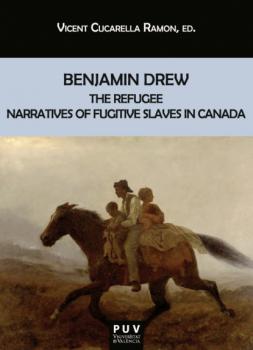ТОП просматриваемых книг сайта:
Vicent Cucarella Ramón
Список книг автора Vicent Cucarella RamónАннотация
Benjamin Drew's «North-Side View of Slavery: The Refugee, or the Narratives of Fugitive Slaves in Canada» (1856) is a collection of his interviews with former slaves living in Canada who had escaped from the United States, and an invaluable example of the transnational abolitionist movement's political agenda. These edited oral accounts show how these runaways turned into African Canadians and reconfigured new meanings of Blackness in Canada, set out the foundations of a Black Canadian sense of attachment, and eventually helped to reshape North America by contributing to the birth of the Canadian nation-state.
Sacred Femininity and the politics of affect in African American women's fiction - Vicent Cucarella Ramón
BIBLIOTECA JAVIER COY D'ESTUDIS NORD-AMERICANSАннотация
This book presents the way in which African American women writers (Hannah Crafts, Zora Neale Hurston and Toni Morrison) have followed the spiritual endeavor of black Christianity as created by early nineteenth-century spiritual narratives to construct a sacred reading of the black female self. The sacred femininity that puts the ethics and aesthetics of African American women at the center of a certain mode of (African) Americanness relies on a view of spirituality that joins women ontologically and validates affective modes of representation as an innovative means to obtain social and personal empowerment.


